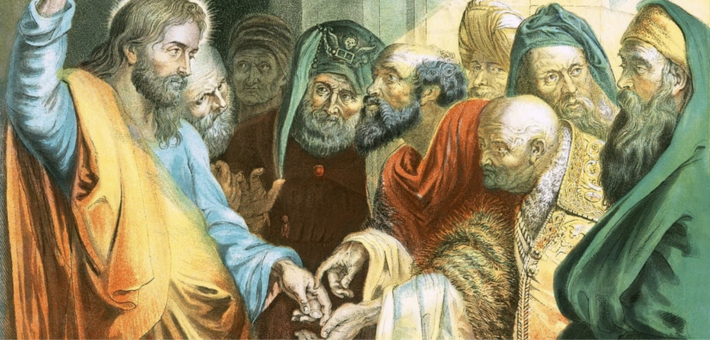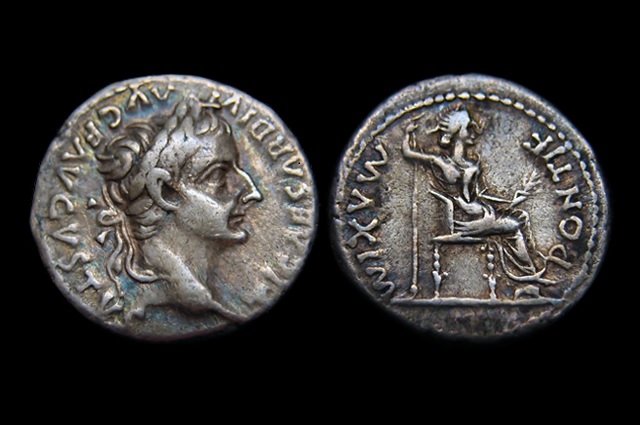Commentary on Isaiah 45:1-7
This passage forms a climactic part of the second half of Isaiah (Isaiah 40-66). While the first half of the book concerned Israel before the exile, the second part addresses the nation in exile. The exilic context of the second half of Isaiah has led many commentators to refer to it as Second Isaiah. Nevertheless, there is a literary and canonical unity to the whole book even if it was the result of an editorial process over time in which the historical contexts shifted between Israel before and during the exile.
While the immediate lesson is 45:1-7, the passage builds on 44:24-28 in which Cyrus is first mentioned. The invocation of Cyrus as God’s shepherd (44:28) and anointed one (45:1) parallels the figure of the suffering servant upon whom God’s Spirit rests (Isaiah 42:1-9; 52:13-53:12). The latter underscores God’s plan to deliver Israel and points toward Jesus while the former shows how that plan involves those even beyond Israel’s borders. What remains central is that God has a plan for creation, but it unfolds in surprising ways that remind humanity of its dependency upon the creator and its ignorance of this infinite and eternal God.
There are three major themes in this passage: God’s plan for creation, God’s unpredictable use of secular forces to bring about His plan, and God’s absolute rule as creator.
God’s plan for creation
The passage moves back and forth between Cyrus as God’s anointed instrument and Israel as God’s elected servant. It’s a movement from the stage of world history to the particularity of Israel and back again. In this way, it builds on the larger theme of the Old Testament that God had chosen Abram from out of the nations to form a people who would be a light to the nations.
The image of God as the potter who makes and shapes creation provides the larger context for this movement. While the image is not explicit until 45:9, it functions as a counter to God as the one who formed Israel in the womb and the maker of all things (Isaiah 44:24). The final verse of this passage should be understood in terms of God as the potter who makes and forms all of life (45:7).
God has a plan for creation. It unfolds through God’s making and shaping history and humanity. God is the potter who stoops over lifeless dust, molding it into His image and filling it with His breath (Genesis 2:7). Paul invokes this image when he tells the Ephesians that they are God’s handiwork or workmanship. While the term could be variously translated, it implicitly refers to God as the potter, the divine artist who shapes and forms life in ways that lead to human flourishing. Such is the grace of God.
God’s absolute rule
The passage concludes with one of the strongest assertions of monotheism in all of scripture. Using verbs of creation (form/make and create), God claims to create light and darkness, weal and woe. Another way of translating “weal” and “woe” is well-being (shalom) and calamity/evil (rā’). The contrast is not between good and evil but between peace and disaster. The point of this contrast is to desacralize the world. We do not live in a universe of gods but in the creation of God.
The text is not claiming that God is the author of evil. This would be a contradiction to the repeated claim that God is the “Holy One of Israel” whose glory fills the whole earth. God’s holiness means that God will be righteous and just in His dealings with His creation. Yet, the text asserts in the most emphatic way that it’s God’s creation and God remains the sole author of it.
In making the claim about God’s absolute rule, the text does not remove human freedom from the equation. In fact, just the opposite. God invites humans to participate as co-creators in forming and shaping the world. God even works through those who do not acknowledge Him in such a way as to invite them to acknowledge His Lordship and to further His plan. The invitation to cooperate reminds us that God delivers not as an outside force acting upon creation through the imposition of His will but as one who steps into creation and saves from within. This perspective finds its ultimate fulfillment in the incarnation through which God becomes flesh and enters fully into the calamities of life.
God’s wildness
While Scripture’s affirmation of a divine plan for life stems from its depiction of God as the creator of all, there is also a sense in which God and God’s plan unfolds in surprising and unpredictable ways. God does not follow the predictable social and political customs of life. He is wild and even uncultivated in the sense that God does not conform to human expectations. One of the clearest places where this occurs is in God declaring Cyrus to be his shepherd and anointed one (Isaiah 44:28; 45:1).
The designation “anointed one” probably stems from God anointing Israelite kings (see Psalm 2). It refers to a divine appointment to fulfill a role or task. God does something similar in designating Assyria as “the rod of my anger” sent against the ungodly (Isaiah 10:5). In this text, however, Cyrus does not seem to be aware of God’s activity. God tells Cyrus, “You have not known me” (Isaiah 45:4).
The British Museum possesses the Cyrus Cylinder, a small clay cylinder that records the conquest of Babylon by the Persians. In the text of the Cylinder, Cyrus claims that the god Marduk called him to conquer Babylon and return exiled peoples to their home. The biblical text is responding to this kind of imperial propaganda by reinterpreting the conquest in terms of God’s providence.
Providence unfolds in unpredictable ways that remind us of the distance between God and humanity. God’s use of Cyrus would have been surprising both to Israelites and to Persians. It is one reason why we pray in the Lord’s Prayer, “not my will but your will be done.” God works his plan in the world less in a straightforward chronology and more in terms of a circuitous manner that allows for human freedom.
The wildness of God is never outside of God’s holiness. And yet, this wildness reminds us that we must conform ourselves to God rather than God to our conceptions and actions. The God who becomes flesh is willing to be shamed and cursed for our sake. It doesn’t get much wilder than that.



October 22, 2023